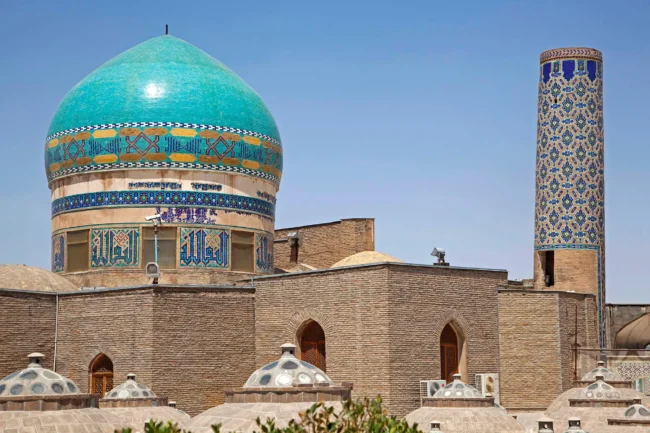The words Middle East evoke breathtaking desert landscapes, modern cities, serene mosques, cutting-edge architecture, and much more. Middle-eastern countries like the UAE, Saudi Arabia and Qatar boast a long list of cultural as well as high-tech attractions, beckoning tourists from all over the world to come to explore their exquisite beauty.
Flights are easily available to and from various cities in the Middle East, thanks to airlines like Etihad, Emirates, and Qatar Airways. Accommodation options in the region range from luxe hotels to budget hostels and can be easily booked on reputable travel websites such as sa.wego.com.
The Middle East, however, is a vast region and seeing it all might seem a bit daunting, even for travellers of Arab descent or Muslim travellers. Worry not, because we have a list of tips that will make travelling through the Middle East simpler for you.
1. Every country has something unique to offer

UAE, with bustling cities like Dubai and Abu Dhabi, is the right place for those expecting a quick city getaway. Saudi Arabia is meant for those who seek religion. Jordan would be enjoyed by tourists interested in ancient history.
The point is, you need to first ask yourself what exactly you are looking for. Only after you answer that question should you settle down upon a travel destination. Every Middle Eastern country has a slightly different flavour of tourism, so knowing what you want will planning your trip easier.
2. You can visit multiple countries together
While it is a good idea to first decide the kind of tourist attractions you want to visit, no one said you can’t do multiple countries together. Remember that most Middle Eastern countries are quite small in terms of area and are geographically close to one another.
The well-developed inter-country transport infrastructure means that you can easily cover at least two to three Middle Eastern nations within a span of 10 days. Just make sure you leave enough time in your itinerary to actually enjoy the destinations, or you’d end up spending the whole vacation just travelling from one country to another.
3. Dress wisely
The Middle East is certainly not as conservative anymore as it was once made out to be. However, this does not mean that tourists can rampantly ignore local customs and dress inappropriately.
Western travellers, in particular, need to remember that, like Asia, the Middle East too has certain cultural and religious norms, and respecting them is non-negotiable. Avoid wearing short, revealing clothes that show your legs or shoulders. Some religious places may require non-Muslims too to adorn religious garbs, so be prepared to respect their traditions.
4. Check the local calendar

Festivals like Ramadan and Eid are celebrated with fervour in the Middle East, and travelling to the region during these times is a truly unique cultural experience. However, note that Muslims follow different-than-usual routines during these occasions, so the opening hours of restaurants as well as tourist attractions may not be convenient to the average tourist.
That is why it is important to check the dates of upcoming religious or cultural festivals, holidays, and vacations before booking your tickets to the Middle East.
5. Don’t haggle if you don’t want to buy
The souks in the Middle East are one of the best places to haggle. Not only is it socially acceptable to haggle, but if you’re good at it, you’d probably get a steal of a bargain.
However, you need to keep in mind that shopkeepers, too, are good at haggling. If you show interest in buying something, the vendors might not leave you alone until you actually buy it. So remember not to enquire about the products if you don’t actually intend to buy them.
6. Avoid getting overly affectionate in public
Holding hands, hugging, and kissing may seem completely human and acceptable in Western cultures. However, physical touch is best avoided in conservative Middle Eastern societies.
Of course, no one is going to bat an eye if you hold your toddler daughter’s hand. However, even a quick peck on your partner’s cheek may get you into trouble with the local police, so make sure you keep your distance.
7. Avoid giving anything to the homeless

Every once in a while in the Middle East, a toddler child may come to your feet, tug at your pants, and ask for food or money. While helping such a destitute child may seem like a perfectly normal and even generous act, you are essentially promoting beggary, and beggary is a crime in most parts of the Middle East.
If you’re feeling bad for the homeless, go ahead and make a donation to the local charity or shelter. But handing out anything to beggars themselves, be it in cash or kind, is a strict no-no.
8. Ask before you click
Although Westerners are usually okay with being photographed, it may not be the case in the Middle East. People here, especially women and children, can be wary of being clicked by strangers and can complain against you.
So make sure that when you are taking a snap of the background, there are no recognizable faces in the foreground. Or ask for permission. The same applies in shops and souks – ask the shopkeepers for their permission before taking pictures of their products.
9. No bacon and alcohol
Middle Eastern cuisine is famous for its fine balance of spices and flavours. So if you’re travelling with some friends of different cultural background and they’re to relish a za’atar spiced pork belly with a side of bacon and a glass of white wine, they won’t find any here.
You won’t get either of those in any Middle Eastern restaurant or bar and looking for contraband items may get you into a legal mess.
10. Stay calm
Public outbursts of anger are frowned upon everywhere, but in some parts of the Middle East, they can actually get you arrested. Shouting cuss words, showing the middle finger, sticking your tongue out, or making any kind of rude and disrespectful gestures goes against local laws.
Police patrols are common in the Middle East and if they catch you in a physical scuffle, you are sure to spend the night in jail.
